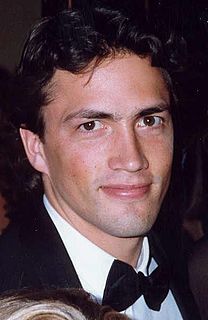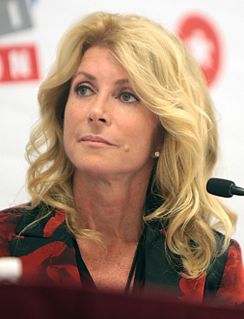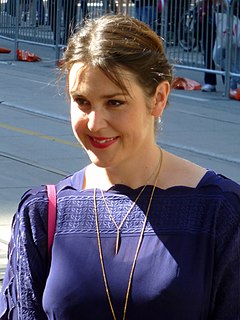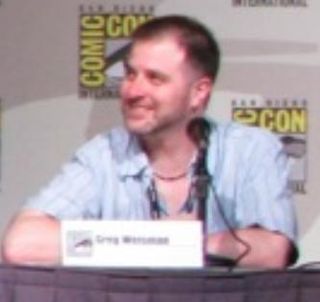A Quote by Richelle Mead
But I didn't know about the other story." "What other story?” "About how you and Adrian Ivashkov are—" "No, whatever you heard it’s not true." "But it was really romantic" "Then it’s definitely not true.
Related Quotes
There's no quit in our family. Our dad was the chief proponent of that. [On the set] we were constantly telling each other, Stay true to the story, we know that we love each other, keep communication open. We knew how unique this was-you're doing a movie that really could be put out there all over the world, and you're telling this personal story about your family.
Mine is a story about a teenage single mother who struggled to keep her young family afloat. It's a story about a young woman who was given a precious opportunity to work her way up in the world. It's a story about resiliency, and sacrifice, and perseverance. And you're damn right it's a true story.
Sometimes we have thoughts that even we don’t understand. Thoughts that aren’t even true—that aren’t really how we feel—but they’re running through our heads anyway because they’re interesting to think about. If you could hear other people’s thoughts, you’d overhear things that are true as well as things that are completely random. And you wouldn’t know one from the other. It’d drive you insane. What’s true? What’s not? A million ideas, but what do they mean?
I feel like any actor should always be thinking about how to serve the story. The thing to be cautious of is trying to make too much of your "moment," or whatever. The story is a lot bigger than you, and you're there to help it along. The thing to think about is whether what you're doing is true to the moment and where the story's going, rather than going, "Here are my scenes. What can I try and do to make the most of them?"
Certainly if it's something you created, like Gargoyles was for me... on the one hand it becomes you and the other writers as well. It's not like it's a one man band by any means, but at the same time when something's really working, when you've got a group of characters that really are clicking and humming, they begin to tell you what happens next. It just all begins to feel right and that was true about Gargoyles. Not true about every show I ever worked on, but it was definitely true about Gargoyles.
We really have a close friendship with Christian Petzold, which means we can be more frank and open towards each other, always with total respect. But, we push each other a bit further and further always, and we're always still curious about each other. And when he talks about a story he's thinking of doing, then the whole process is so special because I'm involved in a very early stage and I have the feeling I can, and not only, influence anything about my character, but about the whole story that my character's in.
I think because it is a very well-saturated story,episode of Justified in Hannibal, and we've all heard it in some frame of a story, we've heard the urban legend of waking up in a bathtub with a kidney missing. It felt like if we are telling an organ-harvesting story, it was really about quickly selling the iconography of an organ-harvesting story, and then being able to mask that as a perfect way for Hannibal Lecter to go shopping for his menu.
Well, this is a story about books." About books?" About accursed books, about a man who wrote them, about a character who broke out of the pages of anovel so that he could burn it, about a betrayal and a lost friendship. It's a story of love, of hatred, and of the dreams that live in the shadow of the wind." You talk like the jacket blurb of a Victorian novel, Daniel." That's probably because I work in a bookshop and I've seen too many. But this is a true story.
I have to get back there." I said to Adrian. "Into that door." He arched an eyebrow. "What, like sneaking in? How very black ops of you. And oh, you know— dangerous and foolish." "I know." I said, surprised at how calm I sounded as I admitted that. "But I have to know something, and this may be my only chance." "Then I'll go with you in case that guy comes back," he said with a sigh. "Never let it be said Adrian Ivashkov doesn't help damsels in distress.


































